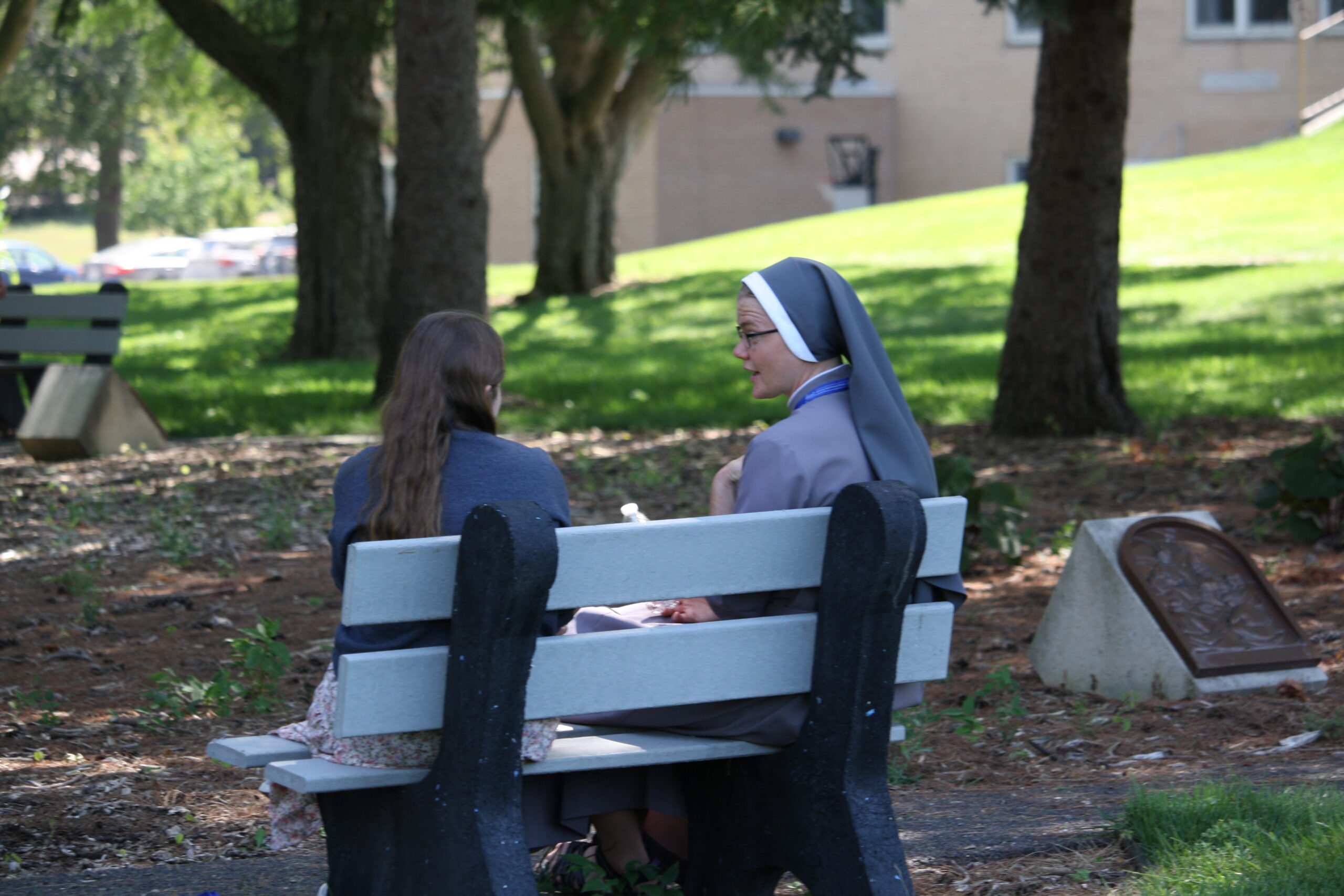CONSECRATED LIFE
All religious profess the vows of poverty, chastity, and obedience (called the evangelical counsels) according to the example and recommendation of Jesus. These vows help the religious to dedicate themselves in love to God alone, and to free themselves for service to the Church. The apostolic exhortation of Pope Saint John Paul explains the purpose of each of the evangelical counsels:
“The chastity of celibates and virgins, as a manifestation of dedication to God with an undivided heart (cf. 1 Cor 7:32-34), is a reflection of the infinite love which links the three Divine Persons in the mysterious depths of the life of the Trinity, the love to which the Incarnate Word bears witness even to the point of giving his life, the love ‘poured into our hearts through the Holy Spirit’ (Rom 5:5), which evokes a response of total love for God and the brethren.
Poverty proclaims that God is man’s only real treasure. When poverty is lived according to the example of Christ who, ‘though he was rich … became poor’ (2 Cor 8:9), it becomes an expression of that total gift of self which the three Divine Persons make to one another. This gift overflows into creation and is fully revealed in the Incarnation of the Word and in his redemptive death.
Obedience, practiced in imitation of Christ, whose food was to do the Father’s will (cf. Jn 4:34), shows the liberating beauty of a dependence which is not servile but filial, marked by a deep sense of responsibility and animated by mutual trust, which is a reflection in history of the loving harmony between the three Divine Persons” (par 21).
Religious Life comes in many different forms. Some communities are active, meaning they have an apostolate among people to aid or assist them with physical or spiritual necessities (teaching, missionary work, care for the poor, etc.) Some are contemplative, meaning their primary apostolate is prayer for the Church and the world. Many communities mix aspects of both active and contemplative life.
The lives of religious are full and richly rewarding, though this may seem contradictory to a worldy understanding of what makes people happy. While religious do not have their own spouses and children, they take the whole Church as their families, and are free to be present in all lives in a unique way. While they do not collect many possessions, they possess true joy and purity of heart, and have more than material possessions can give with the love of God. And while they have bound themselves in obedience, the freedom of trusting entirely in Divine Providence brings allows profound peace and happiness.
Read Vita Consecrata by Pope St. John Paul II

Read about forty-three young women who went to a Fiat Retreat to discern God’s will for their lives. Fiat retreats are for single women ages 18 to 30 who are seeking to foster prayer, self-knowledge, and authentic discernment through a true relationship with Jesus Christ.
Apostolic religious life is a form of consecrated life within the Church wherein the members profess vows of chastity, poverty and obedience within a Congregation or Community approved by the Church.
Shared community life is an integral part of this form of consecrated life. In professing vows and living within community, the members individually and as a whole witness to a life of communion with Christ, the Church, and one another.
Apostolic religious congregations develop their own traditions based on the original vision of their founders or foundresses, while continuing to focus their ministries to meet the needs of the Church today. While every religious congregation is unique, together they form a rich source of inspiration for the entire Church.
In his Apostolic Exhortation, Vita Consecrata, Pope John Paul II described the apostolic religious communities as “a splendid and varied testimony, reflecting the multiplicity of gifts bestowed by God on founders and foundresses who, in openness to the working of the Holy Spirit, successfully interpreted the signs of the times and responded wisely to new needs.
Following in their footsteps, many other people have sought by word and deed to embody the Gospel in their own lives, bringing anew to their own times the living presence of Jesus, the Consecrated One par excellence, the One sent by the Father.
In every age consecrated men and women must continue to be images of Christ the Lord, fostering through prayer and profound communion of mind with him (cf. Phil 2:5-11), so that their whole lives may be penetrated by an apostolic spirit and their apostolic work with contemplation.

